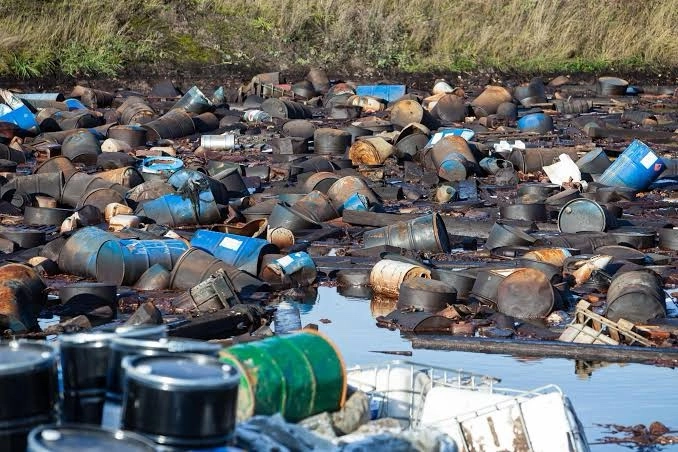
How Chemical Mess is Hurting Our Nigeria, Especially Our Kids and Women

Thinking about all the factories and businesses around Nigeria that produce things. A lot of times they often leave behind messy stuff called chemical waste. This stuff can be like hidden poison and that’s a big problem for our land, our water, and especially the health of our women and children.
Imagine water that has been contaminated with this chemical waste flowing into our rivers and streams. That water most times have dangerous chemicals in it from factories or dumped waste. Many people, especially the women and children, use this water for drinking, cooking, and washing etc. If the water is polluted with these chemicals, it can make our women very sick with different kinds of diseases like cholera, typhoid fever, diarrhea even more serious illnesses over time which could lead to life time problems or even death.

Our soil can also get poisoned. When factories or farms use too many chemicals, or when waste isn’t thrown away properly, these harmful things soak into the ground where we grow our food which can make the food unhealthy and dangerous for human consumption.
The air in some parts of Nigeria is also getting polluted by chemical waste. Factories might end up releasing bad fumes, or people might burn waste in the open and breathing this air which is contaminated can cause coughs, breathing problems, and other health issues, which are especially dangerous for young children whose lungs are still developing.
Why is this extra bad for women and children in Nigeria?

This chemical mess isn’t just ugly; it’s making people sick and harming our environments daily. We need to make sure that factories and businesses handle their waste properly and that our government makes very strict policies to protect us. We also need to learn how to take care of our own waste better so we don’t add to the problem.
If we don’t do something about this toxic trouble, it will keep hurting our land, our health, and especially the future of our women and children in Nigeria. We need to work together to clean up our environment and make sure everyone has a healthy place to live.
